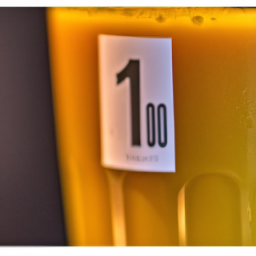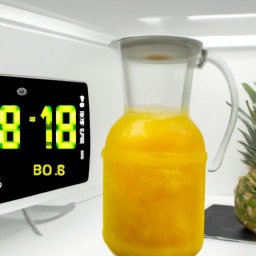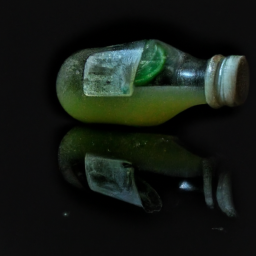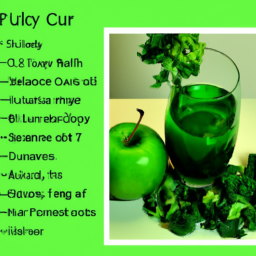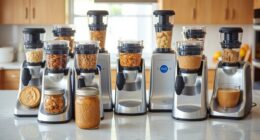As someone who enjoys the flavor of fresh orange juice, I often wonder how long my homemade juice stays fresh. Several factors affect the shelf life of homemade orange juice, including the freshness of the oranges used, the juicing method used, and how the juice is stored.
In this article, I will explore these factors and provide tips for extending the shelf life of homemade orange juice. It’s important to note that homemade orange juice does not contain preservatives like store-bought juice does, so it’s crucial to take proper storage and handling precautions.
By understanding the factors that affect the shelf life of homemade orange juice, you can ensure that your juice stays fresh and safe to drink for as long as possible. So, let’s dive into the details and learn more about how long homemade orange juice can stay good.
Key Takeaways
- Homemade orange juice can last up to 3 days in the fridge at 40°F or below.
- Freezing can extend the shelf life of orange juice up to 3 months without losing much nutritional value and flavor.
- Signs of spoilage include mold, sour smell, color changes, and appearance of floating particles.
- Proper storage and consumption timeline are crucial for maintaining freshness and quality.
Factors That Affect the Shelf Life of Homemade Orange Juice
If you’re wondering how long your homemade orange juice will last, it’s important to consider a few factors that can affect its shelf life. Factors affecting homemade orange juice shelf life include the quality of the ingredients, the temperature at which it is stored, and the cleanliness of the equipment used to make it.
It’s important to use fresh ingredients when making homemade orange juice to ensure that it has a longer shelf life. Using fresh ingredients is essential because the longer the juice sits, the more likely it is to spoil. Freshly squeezed oranges contain more nutrients and are less likely to spoil than pre-packaged orange juice.
Additionally, it’s important to store homemade orange juice in the refrigerator to prevent it from spoiling. By taking these factors into consideration, you can ensure that your homemade orange juice will last for as long as possible.
Now, let’s dive into how long can homemade orange juice stay fresh.
How Long Can Homemade Orange Juice Stay Fresh?
When it comes to homemade orange juice, refrigeration time is crucial to maintaining freshness. Generally speaking, homemade orange juice can stay fresh for up to three days when stored in a refrigerator at 40 degrees Fahrenheit or below.
However, freezing can extend the shelf life of homemade orange juice up to three months. It’s important to be aware of signs of spoilage, such as mold or a sour smell, when determining if homemade orange juice is still safe to consume.
Refrigeration Time
You’ll want to keep your homemade orange juice in the fridge for up to 3 days because fresh orange juice is highly perishable and can quickly deteriorate at room temperature. The ideal storage temperature for orange juice is between 35°F and 40°F. At this temperature, oxidation effects are minimized, and the juice retains its nutritional value and flavor for a longer period.
It’s important to note that even with proper refrigeration, homemade orange juice will eventually go bad. This is why it’s recommended to consume it within 3 days of making it. If you’re unable to drink all of the juice within this time frame, freezing it is a great option that we’ll discuss in the next section.
Freezing Time
To keep it fresh for longer, try freezing your orange juice in ice cube trays. Freezing is one of the most effective techniques to preserve the freshness of homemade orange juice. Here are some tips to ensure that your frozen orange juice stays fresh:
- Use airtight storage containers to prevent freezer burn.
- Leave enough headspace to allow for expansion during freezing.
- Label your containers with the date of freezing to keep track of freshness.
- Thaw only the amount you need to avoid refreezing.
- Use within 6 months for best quality.
When properly frozen and stored, homemade orange juice can last up to 6 months. However, it’s important to be aware of signs of spoilage to ensure that your orange juice is still safe to consume. Let’s explore these signs further in the next section.
Signs of Spoilage
If your nose detects a sour, rancid smell emanating from the container, it’s a clear sign that your homemade orange juice has spoiled. Aside from the odor, there are other indicators that you need to look out for to avoid drinking spoiled orange juice.
One of these is color changes. When orange juice starts to go bad, it may change from its natural orange color to a darker shade. This is because the oxygen in the air reacts with the juice, causing it to oxidize.
Another sign is the appearance of mold or floating particles in the juice. This usually happens when the orange juice has been exposed to air or has not been stored properly.
To avoid drinking spoiled orange juice, it is important to store it properly. The ideal storage temperature for homemade orange juice is between 32 to 40 degrees Fahrenheit. This temperature range slows down the growth of bacteria, which can cause spoilage.
Additionally, it’s best to consume homemade orange juice within 2 to 3 days after making it. If you want to extend the shelf life of your orange juice, you can freeze it in airtight containers for up to 6 months.
By following these tips, you can enjoy fresh and safe homemade orange juice for a longer period of time.
Tips for Extending the Shelf Life of Homemade Orange Juice
Hey, wanna know how to keep your homemade orange juice fresh for longer? Here are some tips to extend its shelf life!
-
Preventing oxidation is key to preserving your homemade orange juice. The longer the juice is exposed to air, the quicker it will spoil. To minimize oxidation, consider these tips:
-
Store the juice in an airtight container to prevent air exposure.
-
Add a small amount of vitamin C or lemon juice to the orange juice. These acidic ingredients will help to maintain the juice’s freshness by slowing down the oxidation process.
-
Refrigerate the juice as soon as possible, ideally within two hours of making it.
-
Using preservatives can also help to extend the shelf life of your homemade orange juice. While some people prefer to avoid preservatives, they can be an effective way to prevent spoilage. Consider using natural preservatives such as honey, ginger, or cinnamon. These ingredients not only preserve the juice, but also add flavor and health benefits.
By following these tips, you can enjoy your homemade orange juice for up to three days. Now that you know how to keep your juice fresh, let’s talk about the benefits of making your own orange juice.
The Benefits of Making Your Own Orange Juice
I love making my own orange juice because it allows me to enjoy the benefits of freshness and flavor.
Freshly squeezed orange juice offers a unique taste that can’t be found in store-bought options.
In addition, homemade orange juice is packed with essential nutrients and saves me money in the long run.
Freshness and Flavor
To maintain the best freshness and flavor in your homemade orange juice, you should consume it within 2-3 days of making it, according to a study by the University of Florida. This is because freshly squeezed orange juice contains natural enzymes that break down over time, causing the flavor to deteriorate.
However, there are a few ways to enhance the flavor and extend the shelf life of your homemade orange juice. Here are three tips to keep in mind:
-
Use different types of oranges to create a unique flavor profile. For example, blood oranges have a sweeter taste, while navel oranges have a more acidic flavor. Mixing different oranges can add complexity to your juice.
-
Store your orange juice in an airtight container in the fridge to slow down the breakdown of enzymes.
-
Add a splash of lemon juice to your orange juice to help preserve its freshness.
Now, let’s move on to the next section about the nutritional value of homemade orange juice.
Nutritional Value
Now that we know how freshness and flavor can affect the quality of homemade orange juice, let’s talk about its nutritional value. Juicing techniques play a big role in preserving the nutrients present in oranges. When oranges are juiced, their fiber is removed, but the juice still contains vitamins and minerals such as vitamin C, potassium, and folate. These nutrients are essential for a healthy body, and drinking homemade orange juice can be a great way to meet your daily requirements.
If you’re looking for an alternative to traditional orange juice, there are other options to consider. For example, you could try blending oranges with other fruits and vegetables to make a smoothie. This is a great way to add more fiber to your diet while still enjoying the benefits of oranges. Additionally, you could try using a juicer that keeps more of the pulp in the juice, creating a thicker, more nutritious drink.
No matter which method you choose, incorporating homemade orange juice into your diet can provide significant health benefits. Drinking homemade orange juice not only provides essential nutrients but can also save you money in the long run. By making your own juice, you can avoid the added sugars and preservatives found in store-bought juices, which can be expensive and unhealthy.
With the right juicing techniques, you can enjoy a delicious and nutritious drink that is good for your body and your wallet.
Cost Savings
Imagine how much money you could save by making your own fresh and nutritious orange juice instead of constantly buying pre-made juices that are packed with added sugars and preservatives. With the right juicing equipment and access to a variety of oranges, you can make a delicious and cost-effective drink that is both healthy and satisfying.
Here are four reasons why making homemade orange juice can save you money:
-
Bulk purchasing: When buying oranges in bulk, you can save money by purchasing larger quantities at a lower cost per unit.
-
No added sugar: By making your own orange juice, you can avoid the added sugars that are commonly found in pre-made juices.
-
Longer shelf life: Homemade orange juice can last up to 5 days in the refrigerator, allowing you to make larger batches and save money on groceries.
-
Variety of orange varieties: When making your own orange juice, you have access to a variety of orange varieties, each with their own unique flavor and nutritional benefits.
With all these benefits, it’s easy to see why making homemade orange juice is a smart and cost-effective choice. But if you’re looking to switch things up, there are plenty of other homemade juice options that you can explore.
Other Homemade Juice Options
I’m excited to discuss other homemade juice options.
Grapefruit juice is a great source of vitamin C and antioxidants, and it can also aid in weight loss.
Lemon juice can improve digestion, boost immunity, and even help prevent kidney stones.
Lime juice is rich in vitamin C and antioxidants, and it’s been shown to have anti-inflammatory and anti-cancer properties.
Grapefruit Juice
You can almost taste the tangy sweetness as you sip on freshly squeezed grapefruit juice, the bright pink liquid refreshing and invigorating.
Grapefruit is a great source of vitamins A and C, as well as antioxidants that help protect against cancer and heart disease. It also contains compounds that may help to lower cholesterol levels and aid in weight loss.
If you’re looking to switch up your juice routine, try incorporating grapefruit juice into your diet. It’s great on its own, but also pairs well with other fruits and vegetables in smoothies or cocktails.
There are also plenty of grapefruit recipes out there to experiment with, from salads to marinades.
Now, let’s move on to the next subtopic about lemon juice.
Lemon Juice
Lemon juice, a staple in most kitchens, has a bright and zesty flavor that can enhance the taste of both sweet and savory dishes. It is also a great source of vitamin C and antioxidants, making it a healthy addition to any diet. A single lemon can yield around 3 tablespoons of juice, but it is important to note that the acidity of the juice can vary depending on the ripeness of the lemon.
| Here are some recipe ideas that incorporate lemon juice: | Recipe | Ingredients | Instructions |
|---|---|---|---|
| Lemon Garlic Shrimp | 1 lb. shrimp, 2 garlic cloves, 2 tbsp. butter, 2 tbsp. lemon juice | Melt butter in a pan. Add garlic and sauté for 1-2 minutes. Add shrimp and cook until pink. Add lemon juice and toss to coat. Serve with rice. | |
| Lemon Vinaigrette | 1/4 cup lemon juice, 1 tsp. Dijon mustard, 1/2 cup olive oil, 1 clove garlic, salt and pepper to taste | Whisk all ingredients together in a bowl. Drizzle over salad or roasted vegetables. | |
| Lemon Bars | 1 cup flour, 1/2 cup butter, 1/4 cup powdered sugar, 2 eggs, 1 cup sugar, 2 tbsp. flour, 1/2 tsp. baking powder, 1/4 cup lemon juice | Mix flour, butter, and powdered sugar. Press into a baking dish and bake at 350F for 20 minutes. Beat eggs, sugar, flour, baking powder, and lemon juice. Pour over crust and bake for an additional 20-25 minutes. |
Moving on to the next citrus fruit, lime juice is also a popular ingredient in many recipes.
Lime Juice
Zesty and tangy, lime juice is a versatile ingredient that adds a refreshing twist to any dish. When it comes to preserving freshness, lime juice can last up to two weeks in the refrigerator if stored properly. It’s important to keep it in an airtight container and away from direct sunlight or heat.
Alternatively, lime juice can also be frozen for up to six months without losing its flavor. If you’re looking for a lime juice alternative, you can also try using key lime juice or lime concentrate. Key lime juice is made from a different type of lime and has a slightly sweeter flavor. Lime concentrate, on the other hand, is a more concentrated form of lime juice and can be diluted with water to achieve the desired taste. Both options can be found in most grocery stores or online retailers.
In comparison to store-bought lime juice, homemade lime juice has a fresher taste and can be customized to your liking. However, it’s important to note that homemade juice may not have the same level of consistency as store-bought juice and may require more effort to make.
Comparing Homemade Juice to Store-Bought Juice
When comparing homemade orange juice to store-bought juice, several factors come into play.
First, the nutritional value of homemade juice is often higher due to the lack of preservatives and added sugars.
Second, the cost comparison can vary depending on the availability and price of oranges in your area.
Third, the quality and freshness of homemade juice is often superior since it’s made from fresh, whole oranges.
Additionally, mixing different types of oranges or adding sugar to homemade orange juice is possible, but it may affect the taste and nutritional content.
Nutritional Value
You’ll want to make sure to drink your homemade orange juice within a few days to get the maximum nutritional value. Orange juice preservation is crucial to maintain the nutrient retention of the juice.
When orange juice is exposed to oxygen, it loses its vitamin C content rapidly. Homemade orange juice may not contain preservatives like store-bought juice, which means it may not last as long. If you want to make your homemade orange juice last longer, you can use airtight containers or freeze it. Airtight containers will prevent oxygen from getting into the juice, which will help retain the vitamin C content. Freezing the juice will preserve it for longer, but it may affect the taste and texture of the juice.
Orange juice is a great source of vitamin C, folate, and potassium. When you make your own orange juice, you can control the amount of sugar that goes into it, ensuring that you are consuming a healthy beverage.
Purchasing store-bought orange juice can be expensive, and it may not contain the same nutritional value as homemade juice. Drinking homemade orange juice not only provides you with essential nutrients, but it can also be cost-effective. With that said, it’s important to note that the cost of making homemade orange juice depends on the price of the oranges in your area.
In the next section, we’ll discuss the cost comparison between homemade and store-bought orange juice.
Cost Comparison
If you want to save money on your orange juice, consider comparing the cost of making it at home versus buying it from the store. There are a few factors to consider when making this comparison, such as the cost of fresh oranges, the cost of any necessary equipment (such as a juicer), and the amount of time and effort required. However, if you plan on drinking orange juice regularly and in large quantities, making it at home can save you money in the long run.
Another benefit of making orange juice at home is that you have more control over the juice quality. Store-bought orange juice often contains added sugars, preservatives, and artificial flavors, while homemade orange juice is simply fresh-squeezed oranges. Additionally, homemade orange juice can last longer than store-bought orange juice if stored properly.
While store-bought orange juice typically has a shelf life of a few weeks, homemade orange juice can last up to a week in the refrigerator. With this knowledge of cost and storage in mind, let’s now explore the importance of quality and freshness when it comes to homemade orange juice.
Quality and Freshness
To ensure that your freshly squeezed orange juice is at its best, it’s important to consider the quality and freshness of the oranges you use. One way to preserve the quality of your orange juice is to use only the freshest oranges available. Citrus fruits that are firm, heavy, and have a bright color are usually the freshest. Additionally, it’s important to store the oranges properly before juicing them. Oranges should be stored at room temperature and away from direct sunlight. This will help maintain their freshness and prevent spoilage.
Another way to preserve the quality of your orange juice is to use proper storing techniques for the juice itself. Freshly squeezed orange juice should be consumed within 24 to 48 hours to ensure the highest quality and freshness. If you want to store the juice for longer, it’s recommended to freeze it. Frozen orange juice can be stored for up to 6 months without losing much of its nutritional value and flavor. To freeze the juice, pour it into an airtight container, leaving some space at the top, and place it in the freezer.
When it comes to preserving the quality of your orange juice, paying attention to the freshness of the oranges and proper storing techniques are crucial. By following these guidelines, you can enjoy the best-tasting orange juice possible. Now, let’s move on to the next section and answer the question of whether different types of oranges can be mixed.
Can you mix different types of oranges?
Hey, have you ever thought about blending two different types of oranges together to create a unique and flavorful juice? Mixing oranges is a great way to explore the world of citrus and experiment with different flavor combinations.
By combining two or more types of oranges, you can create a juice that is sweeter, tangier, or more complex than anything you can buy at the store. When it comes to mixing oranges, there are a few things to keep in mind.
First, consider the sweetness and acidity of each type of orange you plan to use. Some types, like Valencia oranges, are sweeter and less acidic, while others, like blood oranges, are more tart. By blending different types of oranges, you can balance the flavors and create a juice that is perfectly tailored to your taste preferences.
Just be sure to use fresh, ripe oranges for the best results. Can you add sugar to homemade orange juice? Well, the answer is yes, but it’s not always necessary. In fact, by mixing different types of oranges, you may find that the juice is naturally sweet enough without any added sugar.
If you do decide to sweeten your juice, consider using a natural sweetener like honey or agave nectar instead of refined sugar. This will give your juice a more complex flavor and a healthier nutritional profile.
Can you add sugar to homemade orange juice?
Yes, you can definitely sweeten your fresh orange juice with natural alternatives like honey or agave for a healthier and more flavorful option. Adding sweeteners can enhance the taste of your homemade orange juice without compromising its nutritional content. However, it is important to keep in mind that adding too much sugar can increase the calorie count and sugar intake, which may not be ideal for those watching their weight or sugar intake.
To give you an idea of the difference in nutritional content between fresh orange juice and store-bought orange juice, I’ve created a table below:
| Nutrient | Fresh Orange Juice | Store-bought Orange Juice |
|---|---|---|
| Vitamin C | 124 mg | 83 mg |
| Calories | 112 | 112 |
| Sugar | 20 g | 22 g |
| Fiber | 0.5 g | 0.5 g |
As you can see, fresh orange juice contains more vitamin C and less sugar compared to its store-bought counterpart. By sweetening your homemade orange juice with natural alternatives, you can control the amount of sugar you consume while still enjoying its health benefits. Now, let’s move on to the next subtopic and explore if you can freeze freshly squeezed orange juice.
Can you freeze freshly squeezed orange juice?
Freezing freshly squeezed orange juice can be a viable option for preserving this beverage, but it’s important to label the container and allow for slow thawing in the refrigerator. The freezing method involves pouring the juice into a freezer-safe container, leaving a little bit of space at the top to allow for expansion during the freezing process. It’s important to label the container with the date of freezing, as homemade orange juice typically lasts only 2-3 days in the refrigerator.
When it comes time to thaw the frozen orange juice, it’s best to transfer it to the refrigerator and allow it to thaw slowly. This can take anywhere from 12 to 24 hours, depending on the amount of juice and the temperature of the refrigerator. Once thawed, the juice may need to be shaken or stirred to ensure that any separation that occurred during freezing is fully incorporated.
While the taste and texture of the juice may not be quite as fresh as when it was first squeezed, freezing can be a useful method for preserving homemade orange juice for longer periods of time.
Recap of Key Points
To summarize, it’s essential to label the container and allow for slow thawing in the refrigerator when preserving freshly squeezed orange juice through freezing. Here are some key points to keep in mind when storing homemade orange juice:
-
Storage methods: Freshly squeezed orange juice can be stored in the refrigerator for up to 5 days. For longer storage, freezing is the best option. When freezing, pour the juice into a labeled freezer-safe container, leaving at least an inch of space at the top to allow for expansion. Place the container in the freezer, and allow for slow thawing in the refrigerator when ready to consume.
-
Consumption timeline: Once frozen, orange juice can be stored for up to 3 months. However, it’s best to consume it within the first month to ensure optimal flavor and quality. Remember to always check the odor, color, and taste of the juice before consuming, and discard if it appears or smells off.
Proper storage and consumption timeline are crucial for maintaining the freshness and quality of homemade orange juice.
Now, let’s move on to the final thoughts on this topic.
Final Thoughts
To extend the shelf life of homemade orange juice, there are a few recipe variations that can be implemented. One popular method is to add lemon juice to the orange juice. This increases the acidity and can prevent bacterial growth.
Another option is to pasteurize the juice by heating it to a specific temperature for a certain amount of time. This kills any harmful bacteria and can extend the shelf life by several days.
It’s important to note that even with these methods, homemade orange juice will still have a shorter shelf life than store-bought juice due to the lack of preservatives. It’s best to consume homemade orange juice within 2-3 days and store it in a tightly sealed container in the refrigerator.
By implementing these recipe variations and proper storage techniques, you can enjoy fresh homemade orange juice for a little bit longer.
As we wrap up the discussion on homemade orange juice, it’s important to remember that freshness is key. If you’re looking for additional resources on how to make and store fresh juices, be sure to check out reputable sources such as the USDA or FDA. These organizations provide valuable information on food safety and can help ensure that your homemade juices are safe to consume.
Additional Resources
I’d love to share with you some additional resources on making homemade orange juice!
Firstly, I highly recommend checking out some recipes for homemade orange juice. There are many variations that can suit your taste preferences.
Secondly, there are some helpful tips for making homemade juice that can ensure a delicious and nutritious outcome.
Lastly, it’s important to note the health benefits of oranges and the positive impact that consuming them can have on your overall wellbeing.
Recipes for Homemade Orange Juice
You can easily make homemade orange juice by squeezing fresh oranges, and it’s the perfect way to start your morning with a burst of citrus flavor.
To make your homemade orange juice even more delicious, you can try blending different types of citrus fruits or using different blending methods. Here are a few ideas to get you started:
- Blend oranges with grapefruit for a tangy twist.
- Add a few slices of lemon or lime for a subtle sour kick.
- Use a slow juicer for a smoother texture.
If you don’t have access to fresh oranges, you can also experiment with different citrus fruit alternatives, such as blood oranges or mandarins. These fruits have a slightly different flavor profile but can still make a delicious and refreshing juice.
To make your homemade juice even better, there are a few tips and tricks to keep in mind.
But before we dive into those, let’s first take a closer look at the benefits of making your own juice.
Tips for Making Homemade Juice
Get ready to elevate your homemade juice game with these simple tips! First and foremost, invest in good juicing equipment. This includes a high-quality juicer and a sharp knife. A juicer that’s easy to clean and has multiple speed settings is ideal.
It’s also important to use fresh oranges and to clean them thoroughly before juicing. A dull knife can damage the fruit and cause it to oxidize, resulting in a bitter taste. So, make sure to use a sharp knife to slice the oranges before juicing.
Another way to take your homemade juice to the next level is by experimenting with recipe variations. You can add a variety of ingredients to customize the taste of your orange juice. Some popular options include adding ginger, turmeric, mint, or honey. These ingredients not only add flavor but also offer health benefits.
By incorporating different ingredients, you can create a unique blend that suits your taste preferences. So, try out different recipe variations to find your perfect mix.
With these tips, you can create delicious and healthy homemade orange juice that’ll have you feeling refreshed and energized. Speaking of health, let’s explore the health benefits of oranges.
Health Benefits of Oranges
Congratulations! You must be a superhero if you’re not already aware of the incredible health benefits of these citrus wonders. Oranges are one of the most nutrient-dense fruits, packed with vitamins, minerals, and antioxidants.
Here are three reasons why incorporating oranges into your diet can be beneficial:
-
Orange varieties: There are several types of oranges, including navel, blood, Valencia, and mandarin oranges. Each variety has its unique flavor and nutritional profile. For instance, blood oranges are rich in anthocyanins, which are powerful antioxidants that can reduce inflammation and improve heart health.
-
Juicing techniques: Juicing oranges can help you consume more nutrients and increase your daily water intake. However, it’s essential to use the right juicing techniques to maximize the health benefits. For instance, using a slow juicer can help preserve more nutrients compared to a centrifugal juicer.
-
Immune-boosting properties: Oranges are a rich source of vitamin C, which plays a crucial role in strengthening the immune system. Vitamin C can help prevent colds, flu, and other infections by boosting the production of white blood cells.
Incorporating oranges into your diet can have numerous health benefits. However, it’s crucial to ensure that you’re using the right juicing techniques and consuming an adequate amount of oranges to reap their full potential. In the next section, we’ll take a closer look at the references and citations that support these claims.
References and Citations
Now, it’s important to include proper references and citations when discussing the shelf life of homemade orange juice. The shelf life of orange juice can vary depending on the storage conditions and whether or not it has been pasteurized. According to research studies, freshly squeezed orange juice can last for up to 2-3 days when stored in the refrigerator at a temperature of 40°F or below. However, it’s important to note that unpasteurized orange juice may have a shorter shelf life due to the lack of preservatives.
To ensure the safety and freshness of homemade orange juice, it’s important to follow proper storage guidelines and use reputable sources for citations. The table below outlines some common storage guidelines for homemade orange juice:
| Storage Condition | Shelf Life |
|---|---|
| Refrigerated at 40°F or below | 2-3 days |
| Frozen at 0°F or below | 6-8 months |
| Room temperature (unpasteurized) | 4-6 hours |
By following these guidelines and citing reputable sources, we can ensure that we are providing accurate information to our audience regarding the shelf life of homemade orange juice.
Frequently Asked Questions
Can homemade orange juice be frozen?
Yes, homemade orange juice can be frozen for up to 6 months. Freezing options include using ice cube trays or freezer-safe containers. Taste comparison may vary slightly, but overall quality remains high.
Can homemade orange juice be stored at room temperature?
As the adage goes, "when in doubt, throw it out."To properly store homemade orange juice, refrigerate it immediately after squeezing. The shelf life at room temperature is limited to a few hours, so it’s best to consume or refrigerate within that time frame.
What are some signs that homemade orange juice has gone bad?
Signs of spoilage in homemade orange juice include a sour or off taste, visible mold or cloudiness, and a fizzy or bubbly texture. The shelf life of homemade orange juice is typically 3-5 days when stored in the refrigerator.
How long does it take to make homemade orange juice?
When making homemade orange juice, juicer options and the freshness of the oranges will impact the time it takes. Fresh oranges will require less time, while store bought may take longer. Overall, it’s a quick process that yields delicious, fresh juice.
What type of oranges are best for making homemade orange juice?
In my experience, Valencia oranges are the best for making homemade orange juice due to their high juice yield and sweet flavor. This variety also offers great nutritional benefits, such as being rich in vitamin C and antioxidants. Consider exploring other juice varieties for a unique flavor profile.
Conclusion
In conclusion, homemade orange juice can last anywhere from 24 hours to 5 days, depending on various factors such as storage conditions, acidity levels, and presence of preservatives. To extend its shelf life, it’s essential to store it in an airtight container, refrigerate it promptly, and avoid exposing it to heat or sunlight.
Despite the shorter shelf life of homemade orange juice, it offers numerous benefits, including being freshly squeezed, free of added sugars, and customizable to individual preferences. Making your own orange juice can also be a fun and creative activity, and it’s an excellent way to control the quality of the juice you consume.
As a data point, 8 ounces of freshly squeezed orange juice typically contain 124% of the recommended daily value of vitamin C, making it a fantastic source of nutrients. In a way, making homemade orange juice is similar to planting a garden. You tend to it carefully, nurturing it with the right conditions and ingredients, and in return, you get to enjoy the fruits of your labor.
So, grab your juicer and some oranges and start squeezing!
